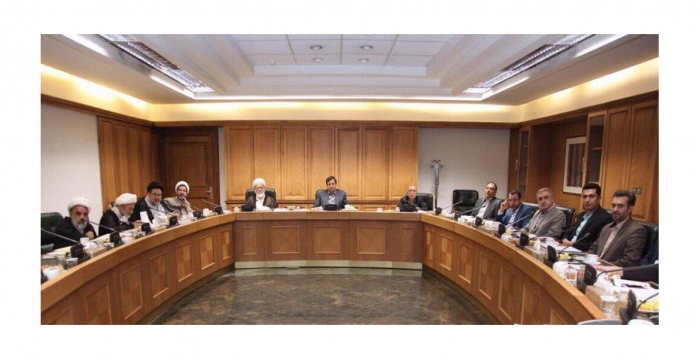
The Sharia Council approved the use of the Sharia-compliant redemption agreement instrument in the interbank market.
Sharia-compliant repurchase agreements (repos) is considered as an instrument for open market and interbank market operations that play an important role in monetary policy and the management of banks' liquidity risk.
Seyed Abbas Mousavian, a member and spokesman for the Central Bank's Sharia Council, said a study of interbank markets around the world shows that repurchase agreements play an important role in managing short-term liquidity of money and capital market practitioners; moreover, repo solves the problems caused by banks' overdrafts fines as well as borrowing from the central bank. Hence, repo is a very good instrument for the central bank's open market operations to implement monetary policy.
He added when a bank needs short-term liquidity, it can transfer its securities in the interbank market through the repurchase agreement instrument to obtain the necessary liquidity and after the liquidity problem is resolved, the bank repurchases its securities. Central banks that intend to pursue an expansionary monetary policy can also enter the interbank market and perform open market operations through a repurchase agreement (repo) to buy securities and inject money into the banking system, and whenever they want to have a contractionary policy, can accumulate liquidity by selling these securities.
Regarding the executive model of the "repurchase agreement (repo)" of the West, the spokesman of the Sharia Council of the Central Bank described the sharia problems as follows:
1. Some Western repo models are based on borrowing and pledging securities that are based on usury and cannot be used in Islamic banking.
2. Although some models of Western repo are based on a buy-sell agreement, are designed in such a way that is “Beyolaynieh”; the second contract is stipulated in the first contract, so this model cannot be used in Islamic banking.
3. In western repurchase agreements, the underlying assets are often government bonds or government treasury bills based on interest-bearing loans and usury that cannot be used in Islamic banking.
Sharia-compliant Repurchase Agreement Design (Repo)
The Vice President of the Sharia Committee of the Securities and Exchange Organization added for more than a decade, researchers in Islamic financial markets have been seeking to design a sharia-compliant repurchase agreement, due to the sharia problems of the Western repurchase agreement (repo). Therefore, the Islamic repurchase agreement (repo) has been proposed with the following characteristics.
1. The Islamic repurchase agreement (repo) is based on purchasing and selling securities, so this point must be fully observed in the laws, regulations and executive instructions.
2. The Islamic repurchase agreement (repo) must be based on legitimate securities such as Islamic treasury bills, participation bonds, lease bonds, government Murabaha bonds and other types of Islamic government sukuk.
3. In the Islamic repurchase agreement (repo), instead of the repurchase condition, two options are used to buy and sell; along with the initial bond sale contract, a right of sale option for the buyer of securities and a right of purchase option for the seller of securities are also traded.
If the above three conditions are met, none of the sharia problems of the Western repurchase agreement will occur.
The text of the resolution of the 18th session of the Sharia Council of the Central Bank is as follows:
1. The repurchase agreement in the interbank market shall be made based on the buy-sell agreement and the effects of the buy-sell agreement shall be implemented in relation to it.
2. There is no redemption condition and the process is based on two options of buying and selling between the parties (central bank and banks).
3. The subject of the contract includes all types of Islamic treasury documents, participation bonds, Ijarah sukuk and other bonds and currencies (at the discretion of the Central Bank).
4. In order to cover the credit hedging in the process of using the repurchase agreement instrument, the determination and amount of the guarantee by the Central Bank is allowed.
5. Considering that open market operations in state-owned banks are mainly carried out through proxy resources (investment deposits), there is no problem in terms of sharia between state-owned banks or between state-owned banks and the central bank to do open market operations through proxy resources.


